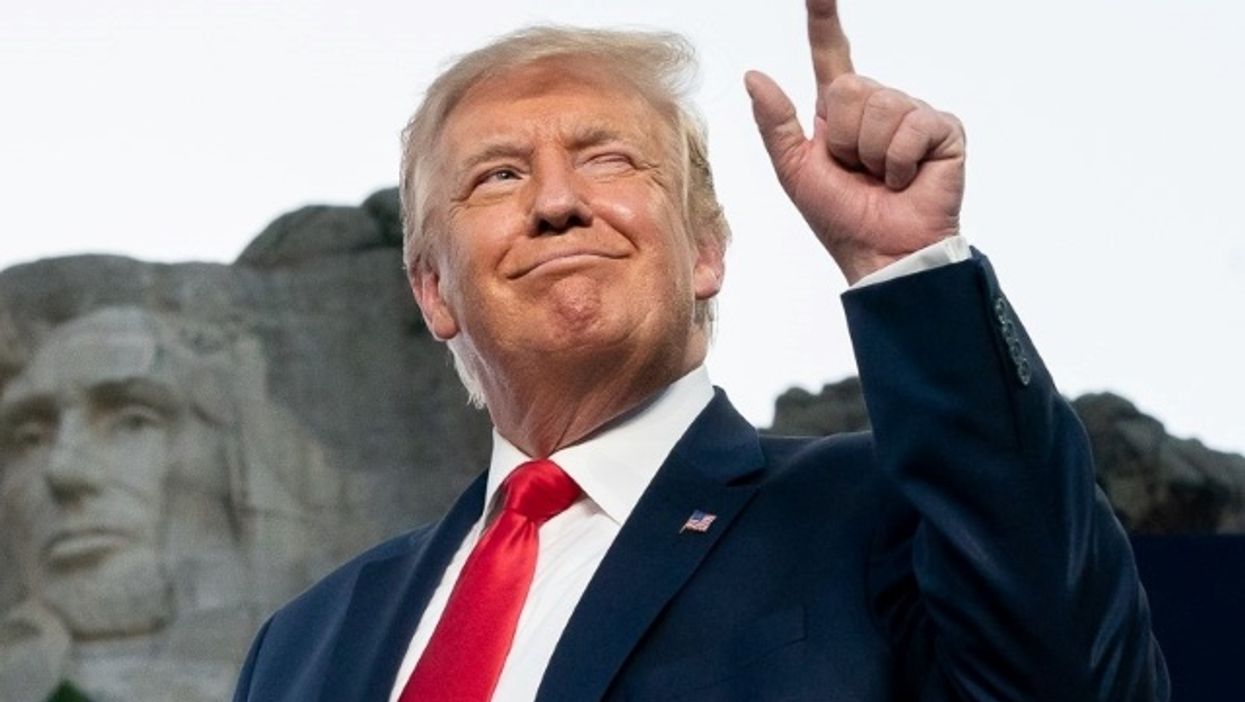
I have some bad news for anyone concerned about the economy. Very bad news. Donald Trump tweeted last Monday, "The Economy is coming back fast!" Tuesday, he proclaimed: "Things are coming back, and they're coming back very rapidly. A lot sooner than people thought."
This is an unmistakable signal that the economy is not coming back rapidly and may not be coming back at all. Whenever Trump boasts of something happening soon, it's time to settle in for a good, long wait, or maybe just give up hope entirely.
Trump made his claims as the COVID-19 pandemic was saying the opposite. Florida set a record for the most new cases in a single day for any state and broke its own record for most deaths from the virus. California Gov. Gavin Newsom banned indoor operations in bars, restaurants and movie theaters, while closing hair salons, workout facilities and malls.
Referring to the pandemic, Texas Gov. Greg Abbott recently said, "The worst is yet to come," and threatened to impose a second state shutdown.
California and Texas, which account for nearly a quarter of the national economy, are more likely to pull it down than lift it up. The same goes for Florida, home to the new epicenter of the outbreak — Miami.
On Tuesday, the nation's big bankers were not succumbing to optimism. "The pandemic has a grip on the economy, and it doesn't seem likely to loosen until vaccines are widely available," said Citigroup chief executive Michael Corbat. JPMorgan Chase projects that unemployment will stay above 10% for the next year.
But Trump does not let mere facts get in the way of his blue-sky promises. When he signed a massive tax cut in 2017, he said it would be "rocket fuel" for the economy. Rockets are swift and powerful, but the tax cuts were neither. An analysis last year by the Congressional Research Service found they had "a relatively small (if any) first-year effect on the economy."
If Trump's optimism were in touch with reality, we would have nothing left of COVID-19 but some mildly unpleasant memories. In February, when there were only a few cases, he said that the number "within a couple of days is going to be down to close to zero." He claimed the virus "will go away in April."
In June, he predicted the imminent onset of a vaccine and a cure: "It's gonna happen very soon." But even without those, he said, "It's going away." Since then, the number of new cases per day has nearly doubled.
The word "soon" doesn't mean what Trump seems to think it means. He said in 2017 that the Affordable Care Act would be repealed "very soon." It hasn't been. He said in May that his border wall "is going up very rapidly." But in three years, as Politifact noted, his project has added just three miles of primary barriers.
At this rate, his wall will be completed in the next millennium. That's rapid, in geologic time. "Soon," in Trump terms, can mean "not soon," "a long time from now," "maybe never" or "when the mountains crumble to the sea."
It's clear from his incessantly premature pledges is that he has a short attention span and hopes everyone else does, too. He doesn't worry about whether what he says will happen actually will happen when he says it will. He just wants his listeners to believe it and put the subject out of their minds. Why shut down states if the coronavirus is already going away? Why pass more economic relief if the economy is "coming back fast"?
Most politicians try to avoid making promises that they can't keep, for fear of appearing dishonest, deluded or incompetent. But Trump is already widely known to be all three, and he makes no effort to change his reputation. When bad things are happening, he'd rather just change the subject.
He made his name doing real estate deals, where you just have to fool people long enough to get their money. In the presidency, he has found, you have to keep fooling people over and over, and that's a lot harder. His strategy, however, is to fool us today and then figure out how to fool us again tomorrow.
That habit is not working as well as it did four years ago, and the result is that Trump may be leaving office in January. Just six months away, but not soon enough.
Steve Chapman blogs at http://www.chicagotribune.com/news/opinion/chapman. Follow him on Twitter @SteveChapman13 or at https://www.facebook.com/stevechapman13. To find out more about Steve Chapman and read features by other Creators Syndicate writers and cartoonists, visit the Creators Syndicate website at www.creators.com.
- Coronavirus Doesn't Worry Trump, Who Says 'Heat' Will Banish It By ... ›
- #EndorseThis: Why Trump's Coronavirus Optimism Is So Scary ... ›
- Trump's Mediocre Economic Gains, In Three Graphs - National Memo ›
- The Trump Economy Is No Great Success (And He Didn't Build It ... ›
- Unemployment Hits Historic High, But Trump Still Boasts 'Greatest ... ›
- Trump Economic Adviser Says Americans Should Wear 'Space Suits ... ›
- Trump Doesn’t Know How To Bring Back Prosperity ›








